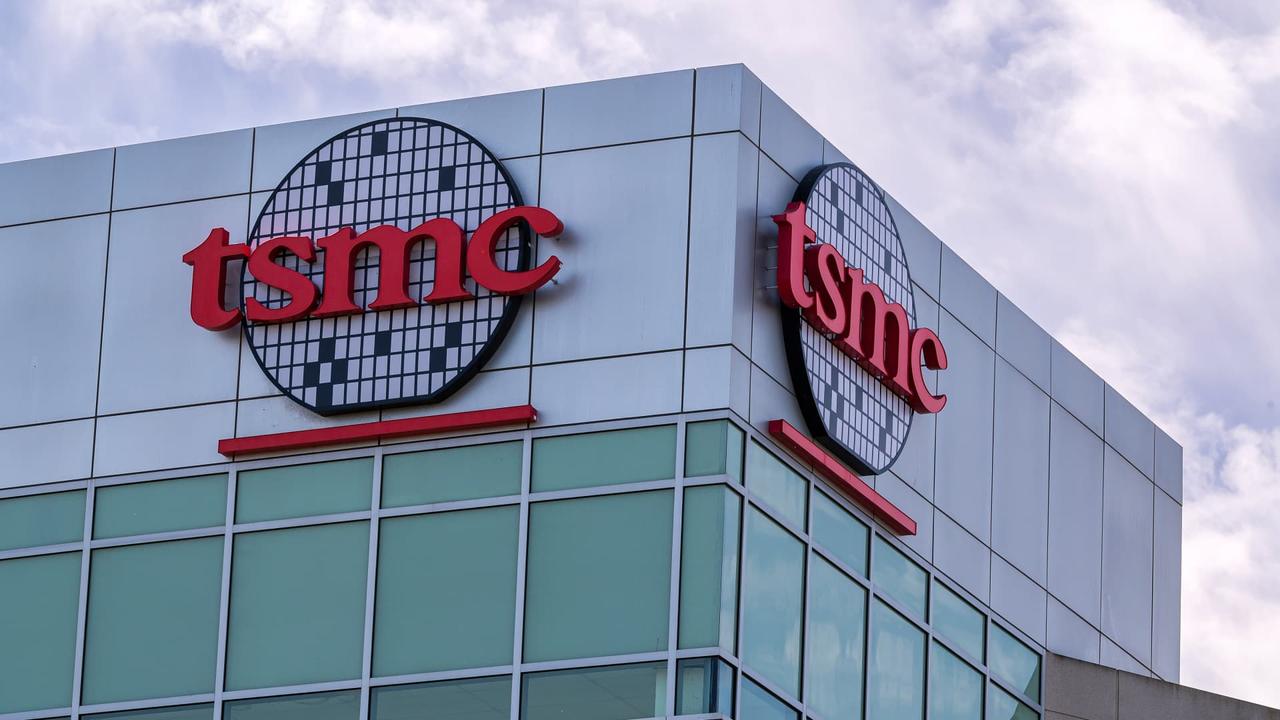Nvidia's Dominance in AI Chip Market Poised for Continued Growth
2 Sources
2 Sources
[1]
Prediction: This Will Be the Next Artificial Intelligence (AI) Chipmaker Stock to Join Nvidia in the Trillion-Dollar Club (Hint: It's Not Broadcom) | The Motley Fool
This chipmaker wins when everyone competes for AI dominance. Nvidia (NVDA 1.40%) has seen its share price soar on the back of huge artificial intelligence (AI)-related spending from big tech companies. The company's graphics processing units (GPUs) are essential infrastructure for training large language models, the backbone of generative AI. As more and more companies invest in the frontier of AI development, Nvidia has been a big beneficiary. The chipmaker joined the $1 trillion club last summer and passed a $2 trillion valuation in February. After a brief foray into the $3 trillion territory, the stock sits just below that threshold as of this writing. But Nvidia isn't the only chipmaker riding the tidal wave of AI spending. Several others have seen big boosts to their business as a result of the requisite data center build-outs, including Broadcom (AVGO -0.25%). Broadcom's networking and AI accelerator chips have proven increasingly valuable as data centers rapidly expand. Both help big tech companies get the most from their investments and have propelled the chipmaker to a $750 billion valuation. The next semiconductor stock to join Nvidia in the trillion-dollar club won't be Broadcom, though. Investors should look up the supply chain to find the next chipmaker to exceed a $1 trillion valuation: Taiwan Semiconductor Manufacturing Company (TSM 0.33%). Taiwan Semiconductor Manufacturing Company (TSMC) is the largest chip fabricator in the world. It accounts for roughly 60% of all foundry spending, and there's a good reason: It has the most advanced chip manufacturing processes in the world. That allows it to make more powerful and power-efficient chips for its customers. Both areas are extremely important for AI and other areas, such as smartphones. Importantly, it's unlikely TSMC's next-closest competitor will be able to unseat the company from its position. TSMC's scale is a massive advantage. With so much revenue coming in, it's able to invest more in research and development. That ensures it remains at the leading edge of manufacturing processes. Big customers, including Nvidia, Broadcom, Apple (AAPL 0.59%), and others contract with TSMC to produce the chips they design for sale and for use in their products. Almost anyone who wants to compete with those companies likely contracts with TSMC as well. So, even if Nvidia or Broadcom start losing market share to a competitor, TSMC is unlikely to lose business overall. In fact, competition for TSMC's limited resources is great for its business. That's seen in its most recent financial reporting. TSMC set a new monthly revenue record in July when it brought in 257 billion New Taiwan dollars (US$8 billion). That's a 45% year-over-year increase for the month. Last quarter, the company saw revenue grow 40% (33% in USD) and net income grow 36%. Two-thirds of its revenue came from its most advanced chip processes. TSMC should continue to benefit from several catalysts over the next few years. That starts with management's outlook for the third quarter. It expects $22.4 billion to $23.2 billion in revenue for the quarter, and it's already ahead of pace with its July sales. At its midpoint, the outlook represents 32% year-over-year growth. Moreover, it expects gross margin to expand to between 53.5% and 55.5%. That suggests the company is exhibiting pricing power amid growing customer demand. That demand should keep growing as big tech companies share plans to spend heavily on AI server capacity. Meta Platforms said it expects significant capital expenditures (capex) growth in 2025, even as it sets new records for capex this year. Likewise, Alphabet's management said the cost of overspending is far less than the cost of under-investing in AI, so investors should expect considerable capital investments there as well. Similar sentiments are echoed throughout the tech space. Many investors are expecting strong results from the next Apple iPhone release, which will include support for new Apple AI features. Many existing iPhone users will be unable to use the latest AI capabilities offered by Apple due to hardware restrictions, which could spur a significant round of upgrades over the next year. Strong iPhone demand will mean strong demand for TSMC's chips. TSMC is preparing for the increased demand. It narrowed its capex forecast for the year to between $30 billion and $32 billion, increasing the low end from $28 billion. The increased spending outlook came with this comment from management: "At TSMC, a higher level of capital expenditures is always correlated with the higher growth opportunities in the following years." Despite TSMC's $875 billion market cap, the stock looks undervalued at today's price. Shares currently trade for a forward price-to-earnings ratio (P/E) of just 26.5. Meanwhile, strong revenue growth and margin expansion can support earnings growth above 20% per year for the foreseeable future. Analysts currently expect 21.5% earnings growth per year over the next five years. That makes TSMC one of the most attractive AI chipmaker stocks on the market. It currently sits about 14% away from the trillion-dollar club, so it shouldn't be long before it reaches the milestone.
[2]
This AI chip giant is 'well on track to grow rapidly' according to Bernstein By Investing.com
Bernstein analysts believe that Taiwan Semiconductor Manufacturing (TSMC), the world's largest chip manufacturer and a key player in the current AI boom, is "well on track to grow rapidly." To be more specific, the investment firm expects Taiwan Semiconductor Manufacturing (NYSE:TSM) to grow its revenue by 26% and its earnings per share (EPS) by 29% this year, with momentum expected to carry into 2025 and beyond. These expectations are driven by strong demand from data center AI and high-end smartphones, which are utilizing TSMC's advanced N3 and N4/5 nodes. Bernstein highlights that the company's capacity for these nodes has been fully utilized and will remain so well into 2025, despite a slower recovery in older nodes. Moreover, TSMC's CoWoS (Chip on Wafer on Substrate) service is experiencing rapid expansion, contributing to advanced packaging revenue. This rise in advanced services, coupled with a favorable foreign exchange environment, is expected to push TSMC's revenue growth in Taiwan dollars to 30% for the year. Looking ahead, Bernstein projects TSMC's rapid growth to persist into 2025 and 2026, with EPS projected to rise by 30% and 19%, respectively. The continuous expansion in data center AI demand, along with Intel's increasing reliance on TSMC for outsourcing, will fuel this growth. TSMC's N3 and N4/5 nodes are also set to see a price increase of 5-10% starting early 2025, adding to the company's revenue. "We hence project the revenue ramp of N3 will be steeper than that of N4/5," Bernstein analysts note. "And despite some transition to N3, the contribution of N4/5 will stay more resilient than prior nodes. " "Regarding margins, the utilization of older nodes should sustain the gradual recovery and N3's margin drag will be lighter. Both will make margins rise YoY but we're mindful of the 2-3% margin dilution from overseas fabs and hence expect only a modest margin increase." For 2026, Bernstein acknowledged that Intel (NASDAQ:INTC) reducing outsourcing at Panther Lake could be a potential headwind. However, the firm believes AMD (NASDAQ:AMD) and Arm-based CPUs from Qualcomm (NASDAQ:QCOM) and MediaTek will continue to leverage TSMC's superior technology, mitigating the impact through market share gains from Intel. Furthermore, AMD's early adoption of N2 technology is expected to boost its performance, with less margin drag than N3. The analysts project TSMC's revenue and EPS to grow by 24% and 30% in 2025, respectively, and while growth will decelerate in 2026, it should still achieve 15% revenue and 19% EPS growth. Bernstein maintains an Outperform rating on TSMC, emphasizing that the stock's valuation remains attractive, "especially as TSMC can fare better in a recession." "We don't expect a recession but TSMC's technologies & share gains will help it weather one better," analysts wrote. Bernstein holds a price target of NT$1,185 on TSMC shares, reflecting a 24% upside, including a 2% dividend yield.
Share
Share
Copy Link
Nvidia's strong position in the AI chip market is expected to lead to significant growth, with analysts predicting substantial increases in revenue and market share.

Nvidia's Market Dominance
Nvidia, the leading artificial intelligence (AI) chip company, is poised for continued growth and market dominance in the coming years. The company's strong position in the AI chip market has caught the attention of investors and analysts alike, with many predicting substantial increases in revenue and market share
1
.Bernstein's Bullish Outlook
Investment firm Bernstein has expressed a particularly optimistic view of Nvidia's future. The firm believes that Nvidia is well-positioned to capitalize on the growing demand for AI chips, projecting significant growth in the company's data center business
2
.Revenue Projections
Bernstein's analysts have provided impressive revenue projections for Nvidia. They estimate that the company's data center revenue could reach $70 billion in fiscal year 2026, up from $15 billion in fiscal year 2023. This represents a compound annual growth rate (CAGR) of 67% over three years
2
.Market Share Expectations
The Motley Fool reports that Nvidia currently holds a commanding 95% share of the AI chip market. This dominant position is expected to continue, with projections suggesting that Nvidia could maintain an 85% to 90% market share through 2027
1
.Factors Driving Growth
Several factors contribute to Nvidia's strong growth prospects:
- Increasing demand for AI applications across various industries
- Nvidia's superior chip technology and performance
- The company's established ecosystem and software platforms
- Partnerships with major cloud service providers and tech companies
Related Stories
Competitive Landscape
While Nvidia currently dominates the AI chip market, competition is intensifying. Companies like Advanced Micro Devices (AMD) and Intel are working to develop their own AI chips. However, analysts believe that Nvidia's technological lead and market position will be difficult to challenge in the near term
1
.Investor Implications
The positive outlook for Nvidia has significant implications for investors. The company's stock has already seen substantial growth, and many analysts believe there is still room for further appreciation. However, as with any investment, potential risks should be carefully considered, including market volatility and the rapid pace of technological change in the AI sector
1
2
.References
Summarized by
Navi
Related Stories
Recent Highlights
1
ByteDance Faces Hollywood Backlash After Seedance 2.0 Creates Unauthorized Celebrity Deepfakes
Technology

2
Microsoft AI chief predicts artificial intelligence will automate most white-collar jobs in 18 months
Business and Economy

3
Google reports state-sponsored hackers exploit Gemini AI across all stages of cyberattacks
Technology








